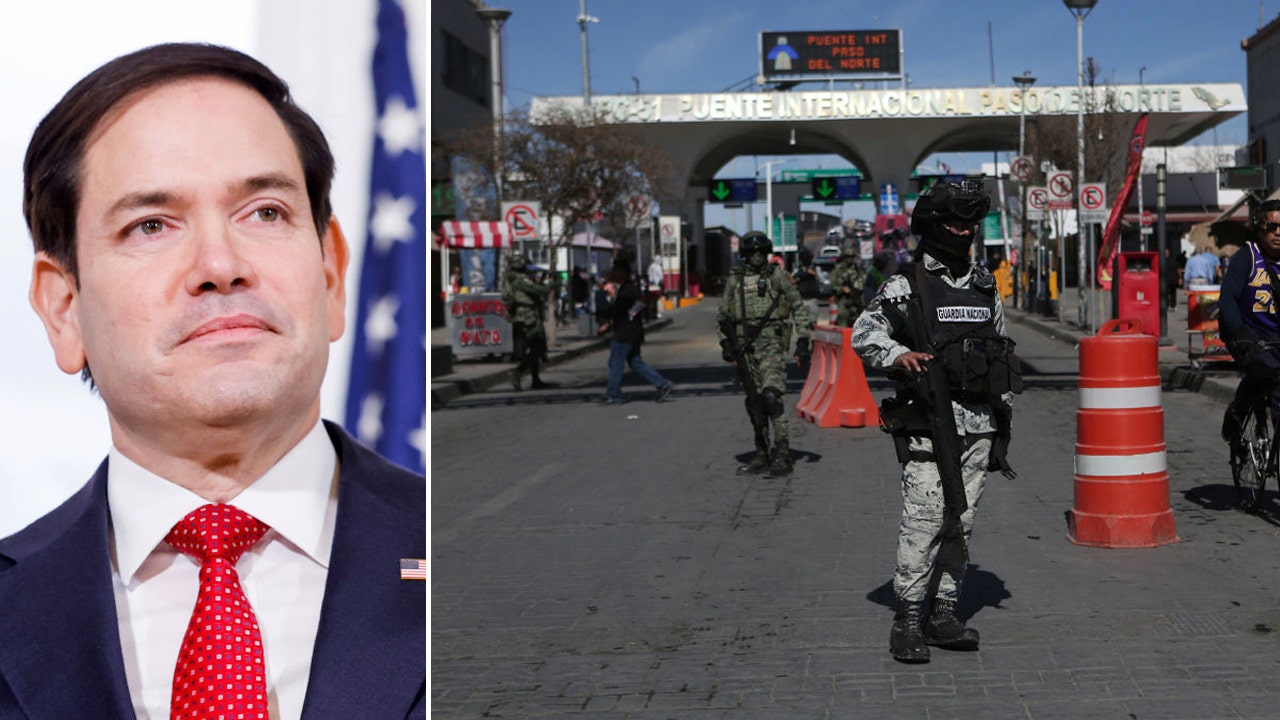Politics
Rubio greenlights $7M+ in waivers to keep border security efforts in Mexico alive amid funding freeze

Secretary of State Rubio’s Strategic Use of Waivers to Combat Fentanyl and Strengthen Border Security
In a strategic move to address the growing concerns of fentanyl trafficking and border security, Secretary of State Marco Rubio has been utilizing waivers to maintain crucial programs in Mexico. These programs, initially paused due to federal funding issues, are vital components of the International Narcotics and Law Enforcement Affairs (INL) initiative. Rubio’s decision highlights the U.S. government’s commitment to combating the opioid crisis and securing its borders, even as it navigates broader funding challenges.
The Role of the INL Program in Global Security Efforts
The INL program is a cornerstone of U.S. international law enforcement efforts, providing critical support to countries facing significant narcotics production and organized crime issues. By assisting foreign law enforcement agencies, the INL aims to reduce the flow of illegal drugs into the U.S. and mitigate the impact of international crime on its citizens. In Mexico, this program is essential for combating the production and trafficking of fentanyl, a synthetic opioid responsible for thousands of overdose deaths in the U.S. each year.
The Fentanyl Crisis: A Deadly Consequence of Illicit Trafficking
Fentanyl, often produced in Mexico using Chinese precursors, poses a dire threat to public health in the U.S. This lethal drug, which can be fatal in extremely small doses, is smuggled across the U.S.-Mexico border and has become a leading cause of overdose deaths. The INL programs in Mexico are instrumental in training local authorities to identify and dismantle fentanyl labs, as well as in intercepting precursor chemicals that fuel its production. By maintaining these programs, Rubio aims to disrupt the supply chain and save countless American lives.
Rubio’s Waivers: A Calculated Move to Pressure Mexico
Despite the pause in federal funding, Rubio has approved $5.2 million in waivers for INL programs in Mexico, with an additional $2.5 million pending. These funds support law enforcement initiatives, including the extradition of fentanyl traffickers and migrant smugglers to the U.S. However, Rubio has chosen not to publicly announce these waivers, using them as leverage to demand greater commitments from Mexico on border security and anti-fentanyl efforts. This strategic approach reflects the U.S. government’s dual goals of maintaining cooperation with Mexico while ensuring tangible results in the fight against fentanyl.
Mexico’s Shifting Stance on INL Assistance
Mexico’s response to INL programs has been mixed under different administrations. While former President Andrés Manuel López Obrador rejected certain aspects of U.S. assistance, the new administration under President Sheinbaum has shown a willingness to collaborate, albeit with some reservations. Rubio’s recent visit to Latin America has already yielded positive results, with several countries committing to enhanced border security measures. The resumption of INL funding for Mexico is expected to follow, once the U.S. is assured of Mexico’s serious commitment to addressing the fentanyl crisis.
A Broader Migration Strategy: The Trump Administration’s Approach
Rubio’s actions are part of a larger migration-focused strategy by the Trump administration, which has successfully negotiated several border security agreements with Mexico and Canada. These agreements include commitments to accept migrants being returned from Venezuela and Colombia, as well as the deployment of Mexican troops to the U.S.-Mexico border. By addressing both the migration crisis and the fentanyl epidemic, the U.S. aims to create a more secure and stable region, with Mexico playing a crucial role as a partner in these efforts.


















